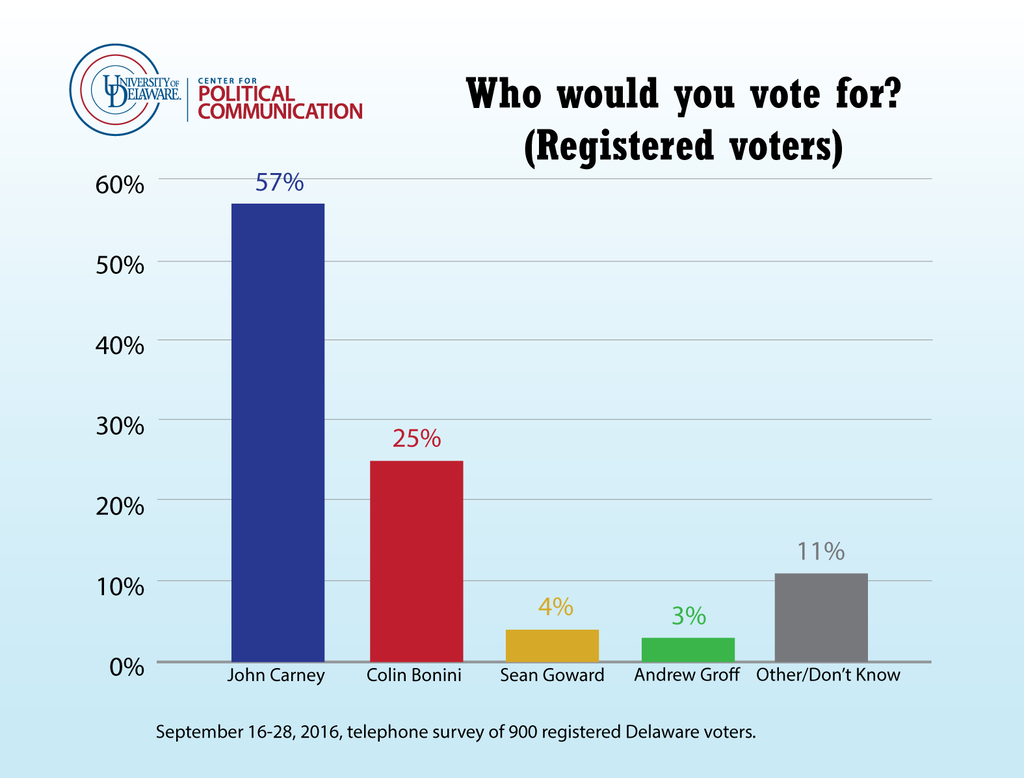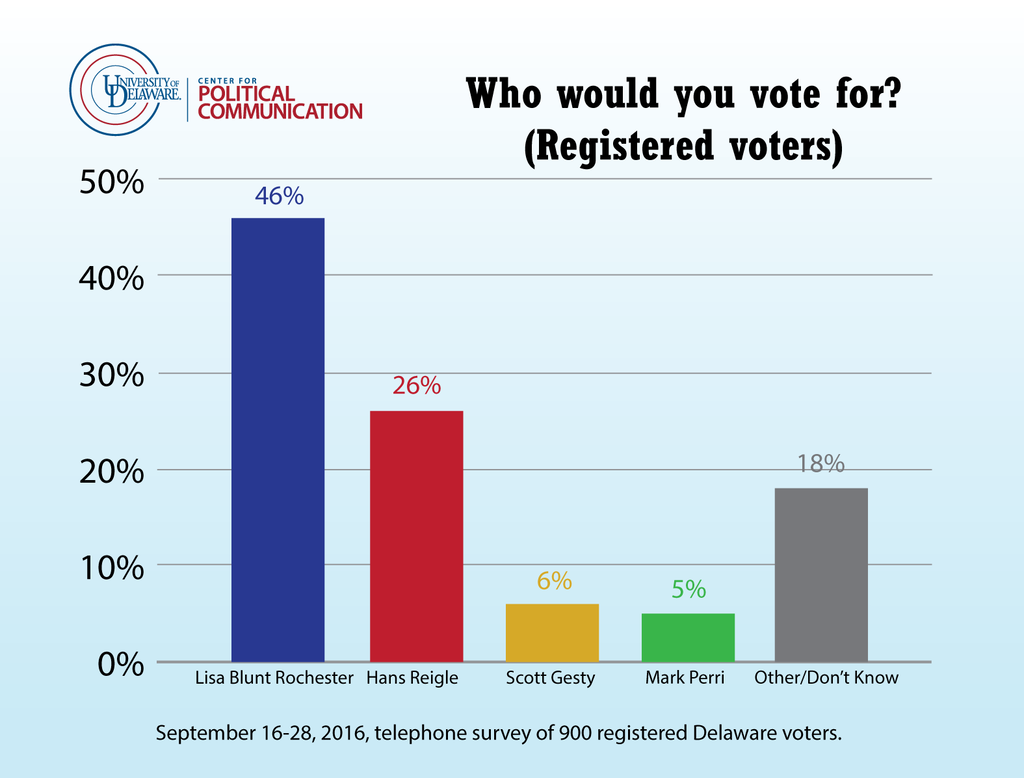Carney, Blunt Rochester take leads in Delaware races
Carney leads Bonini, 57% to 25%, in Delaware governor race

October 4, 2016 — For more information or to discuss the results, contact: Peter Bothum, Office of Communications and Public Affairs (302) 831-1418
A new University of Delaware Center for Political Communication survey finds that 57% of registered voters in Delaware would vote for Democratic candidate John Carney and 25% would vote for Republican candidate Colin Bonini, if the election for Delaware governor were being held today. Also, 4% supported Libertarian candidate Sean Goward and 3% chose Green candidate Andrew Groff. The representative telephone survey, conducted on September 16-28, 2016, interviewed 900 registered Delaware voters by landline and cell phone.
Blunt Rochester leads Reigle, 46% to 26%, in Congressional race

In the race for Delaware’s seat in the U.S. House of Representatives, 46% of registered voters would vote for Democratic candidate Lisa Blunt Rochester versus 26% for Republican candidate Hans Reigle. Libertarian candidate Scott Gesty was the choice of 6%, and 5% supported Mark Perri of the Green Party.
Other findings from the survey:
- Carney receives majority support among both women and men, as well as across all age groups, racial and ethnic groups, and levels of education.
- More than a fourth of Republicans surveyed (26%) say they would vote for Carney.
- Carney leads by double-digit margins in all three of Delaware’s counties.
- Blunt Rochester leads Reigle by only 5 percentage points among white respondents (39% to 35%) but leads by 69 points among African American respondents (73% to 4%).
- Blunt Rochester leads Reigle by 31 points in New Castle County, 5 points in Kent County, and 4 points in Sussex County.
About the study
The National Agenda Opinion Project research was funded by the University of Delaware’s Center for Political Communication (CPC) and the William P. Frank Foundation. The study was supervised by the CPC’s Research Director, Paul Brewer, a professor in the Departments of Communication and Political Science & International Relations.
Results are based on telephone interviews with a representative sample of 900 registered voters. Telephone interviews were conducted by landline (450) and cell phone (450, including 187 without a landline). The survey was conducted from September 16-28, 2016, by Princeton Survey Research Associates International. Statistical results are weighted to correct known demographic discrepancies. The margin of sampling error for the complete set of weighted data is – 3.8 percentage points.
Readers should be aware that in addition to sampling error, question wording and practical difficulties in conducting surveys can introduce error or bias into the findings of public opinion polls.
Please contact Paul Brewer at (302) 831-7771 for more details about the survey’s methodology.
